Publications
Articles, publications, books, tools and multimedia features from the U.S. Institute of Peace provide the latest news, analysis, research findings, practitioner guides and reports, all related to the conflict zones and issues that are at the center of the Institute’s work to prevent and reduce violent conflict.
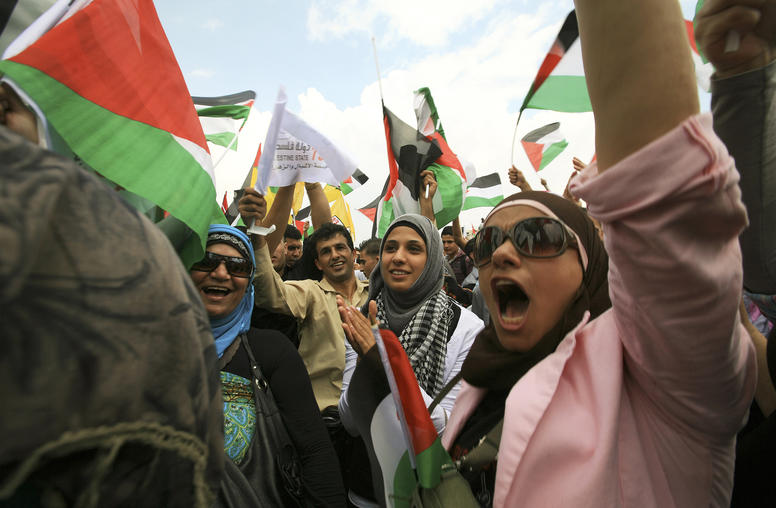
Palestinian Politics Timeline: Since the 2006 Election
The Palestinian movement split—politically, geographically, militarily and strategically—after the 2006 Palestinian Legislative Council elections. Fatah, a secular movement, led the Palestinian Authority in the West Bank. Hamas, an Islamist movement, ruled in Gaza.
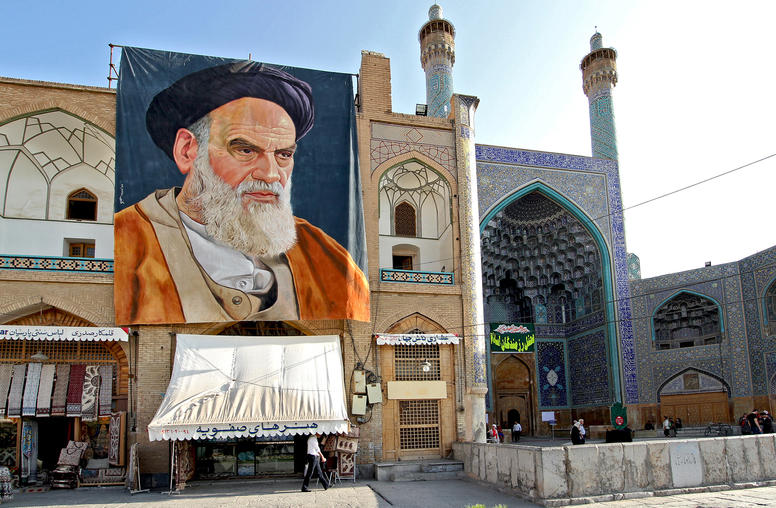
Iran Timeline: Since the 1979 Revolution
Iran, proud and passionate, has been a conundrum since its 1979 revolution. For decades, a confluence of challenges—political and cultural repression, menacing rhetoric, and defiance over its nuclear program—complicated dealing with the Islamic Republic. Iran’s revolution has passed through at least five phases.
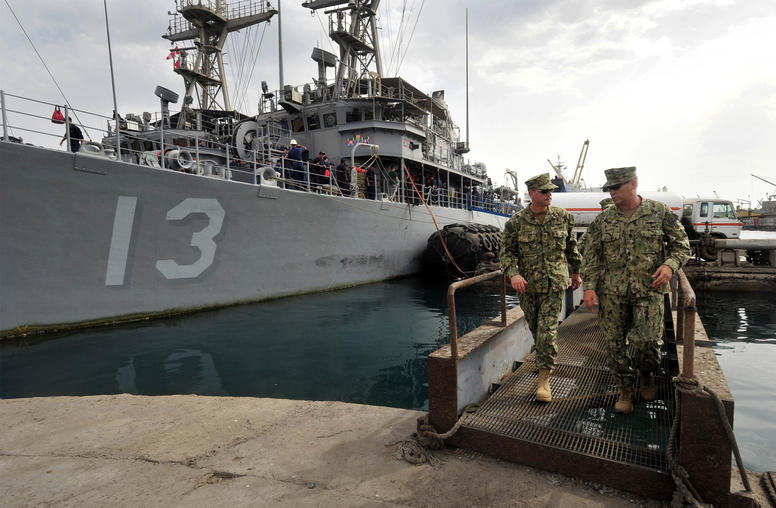
In Red Sea Region, Competing Outside Powers Complicate U.S. Interests
David Shinn, a former U.S. ambassador to Ethiopia and Burkina Faso, examines how great and regional power competition is impacting political and security dynamics in the Horn of Africa and complicating U.S. interests in the region.
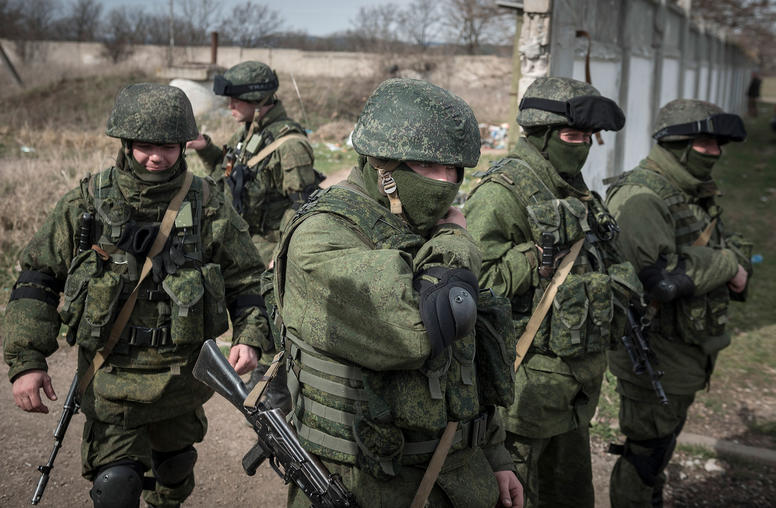
It’s Time to Stand Up to Russia’s Aggression in Ukraine
Five years ago, Russia rolled into Crimea, orchestrated a swift and one-sided referendum, and annexed the Ukrainian territory. The West was blindsided by the attack and slow to provide any response. As a result, Russian President Vladimir Putin launched a second invasion of Ukrainian soil—this one in the country’s east. This attack met stronger resistance, and eventually the West swung into gear to push for a cease-fire and to impose sanctions on Russia. Yet the conflict rumbles on and has killed over 10,300 Ukrainians so far.
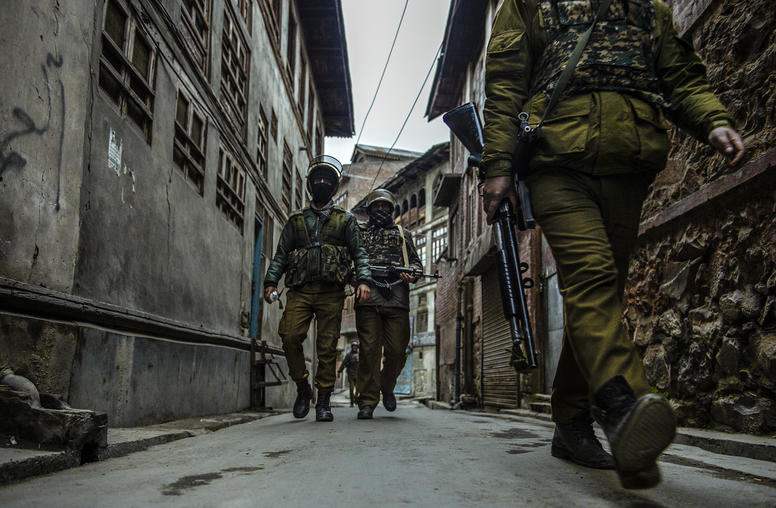
What Can be Done to Calm the India-Pakistan Crisis?
On February 14, in the disputed region of Kashmir, a suicide bomber rammed into a convoy of Indian paramilitary police, killing 44. The attack was claimed by the Pakistan-based Islamist group Jaish-e-Mohammad and was the deadliest bombing in Kashmir in three decades. Nearly two weeks after the attack, India launched a retaliatory airstrike. USIP’s Moeed Yusuf examines how the U.S. and international partners are key to preventing further escalation that could lead to nuclear war.
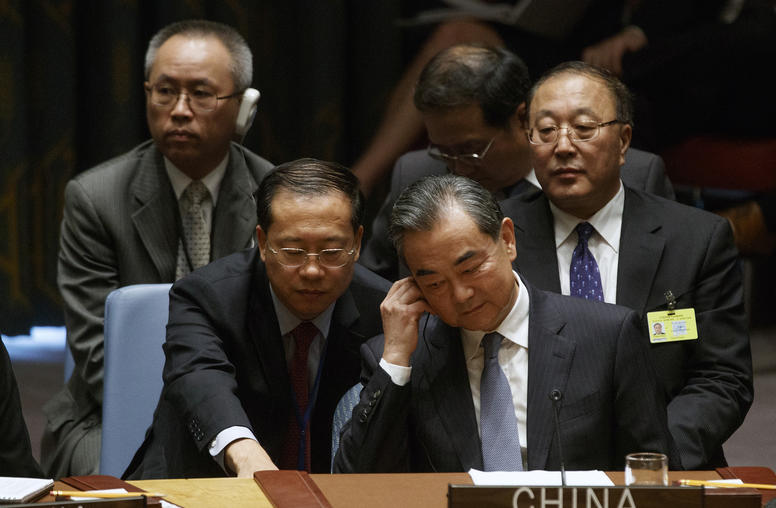
India-Pakistan Tensions Test China’s Relationships, Crisis Management Role
The latest India-Pakistan crisis has put China in a difficult position, as it tries to balance its relationships with both countries, while helping to stave off a conflict and demonstrate its ability to manage and resolve crises. Chinese Foreign Minister Wang Yi spoke to leaders in both Pakistan and India last week, urging them to practice restraint and find a way to deescalate the situation. Despite Pakistan’s request for China to play a more active role, competing priorities constrained the degree to which Beijing could lead—highlighting a chronic challenge for Chinese diplomacy in South Asia. China’s decision to keep a low profile is likely deliberate and in keeping with longstanding practice, but it is inconsistent with Beijing’s aspirations to lead in Asian crisis diplomacy.
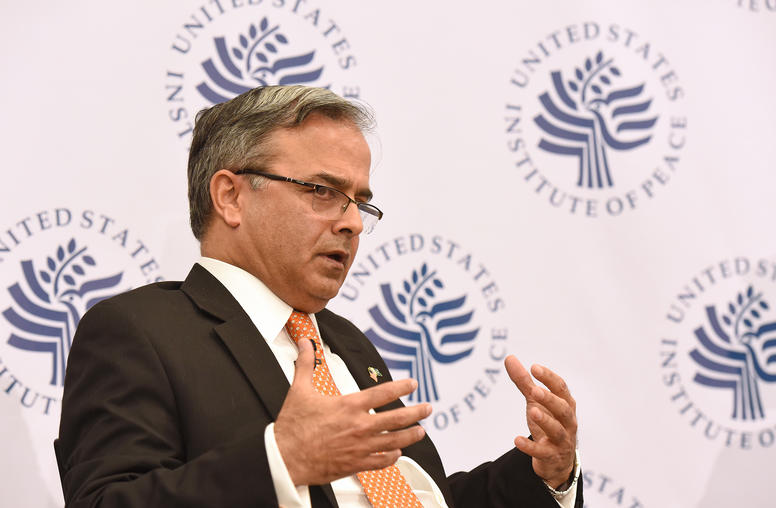
Pakistan Envoy Speaks on India, Terrorism and Afghan Peace
Echoing his country’s leaders, Pakistan’s new ambassador to the United States, Asad Majeed Khan, affirmed that his government will take an across-the-board approach to controlling extremist groups without regard for their particular cause or connections.
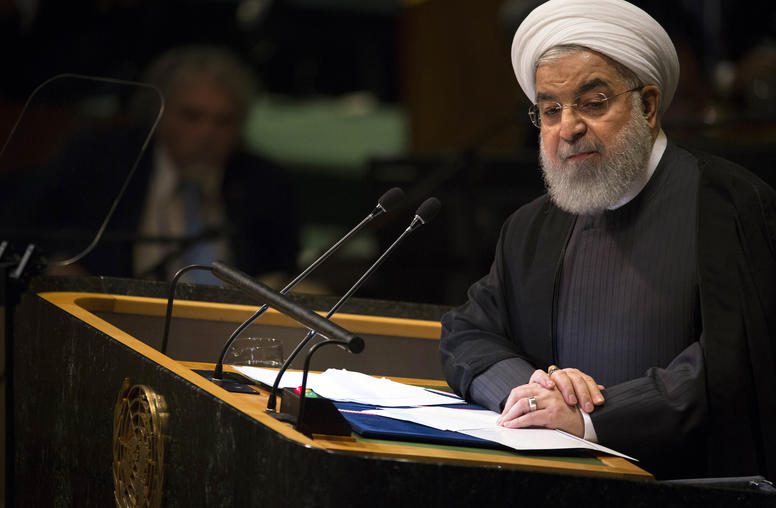
Iran Looks to Shore up its Influence in Iraq
This week, Iran’s president, Hassan Rouhani, made his first official trip to Baghdad. Following a meeting with Iraqi Prime Minister Adel Abdul Mahdi, the two leaders announced agreements to expand trade, establish a rail link between the two countries, and remove travel restrictions. Rouhani also had a high-profile meeting with Grand Ayatollah Ali Sistani, the most revered religious authority in Iraq. USIP’s Sarhang Hamasaeed examines the implications for the complicated Iran-Iraq relationship.
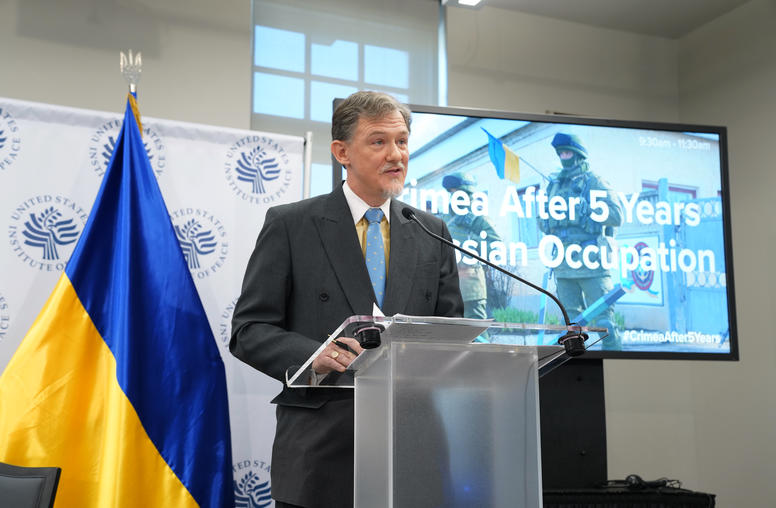
Crimea Seizure: A Policy Struggle Five Years Later
Five years after Russian forces took Crimea from Ukraine, the international community is still struggling with how to respond to a major power seizing another country’s territory for the first time since World War II and the founding of the United Nations, a senior State Department official said.
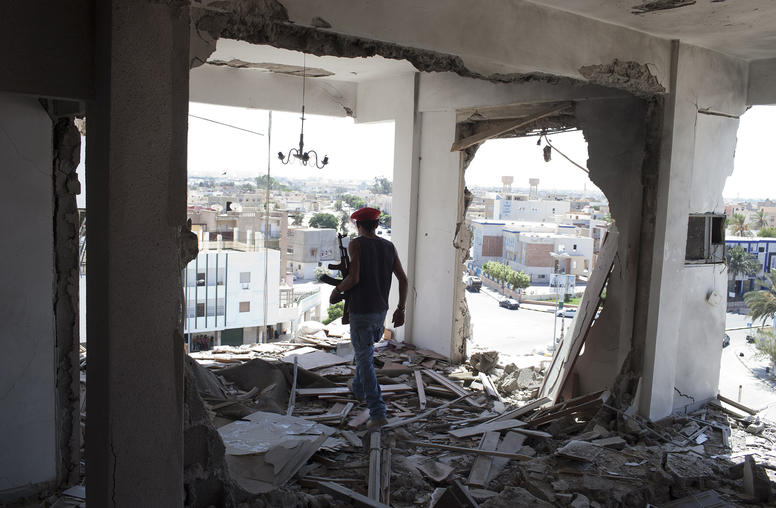
Q&A: Libya’s Sudden New Risk of War
Just as the United Nations was preparing to host a national conference in Libya this month to arrange for national elections to unify the country’s fractured governance, the faction that dominates the country’s east, the Libyan National Army, launched a military offensive last week on the capital, Tripoli. With the past week’s fighting, “the likelihood is greater than at any point since 2014 for destructive and bloody conflict” of an uncertain duration and outcome, according to Nate Wilson, who manages USIP programs in Libya. Wilson monitors Libya from neighboring Tunisia while working with Libyan officials, researchers on projects to inform international policymakers, and with local Libyan groups that work to reconcile disputes and build a foundation for national peacemaking. In response to questions, he discussed what’s at stake in the new fighting, and how the international community might respond.